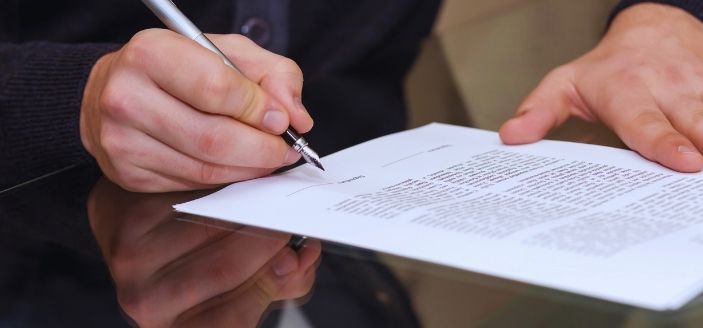14 Feb Confidentiality agreement

Confidentiality agreement
by George Coucounis
“Confidentiality should be safeguarded in commercial transactions”
Every transaction includes elements of confidentiality, especially with regard to the sale of assets, property, shares or in the event of agency, franchising and employment. During the course of the negotiations, the seller usually provides the potential buyer with documents and business information of confidential nature in order to assist him to complete due diligence with the prospect of purchase. Even the fact that the seller is willing to sell, as well as reference to the consideration, are confidential until the transaction is completed. Consequently, it is preferable for confidentiality to be safeguarded by signing a relevant agreement so that to protect the seller and to prevent the potential buyer or his employees, representatives or professional consultants from disclosing documents or information regarding the potential transaction.
Upon completion or termination of the negotiations, whether the transaction is completed with the signing of an agreement or not, an obligation is imposed for the return of the documents and information provided. It is also preferable for a confidentiality agreement to be signed prior to such disclosure, even though its purpose is to cover information already disclosed. In this way the recipient of the confidential information cannot unfairly find himself in an advantageous position, as required by the principle of equity and the law of contract.
The undertaking for confidentiality is incorporated in documents referring to the heads of terms of a potential agreement, as well as in almost every commercial arrangement. Apart from the seller, the buyer may also request confidentiality for the information provided to the seller. In a confidentiality agreement, the recipient undertakes the obligation to keep certain information and documents secret and to exclusively use them for the particular purpose. Certain measures are taken for the protection of the information, such as placing the word “CONFIDENTIAL” on a document, the signing and sealing of the document by the person providing it, sending a numbered copy which cannot be processed, stating the persons who will take knowledge of the information and have access to it, who will also be bound to keep it confidential.
When it is necessary to provide a third unauthorised person with confidential information or document, the recipient is obliged to secure the previous written consent of the provider and thereafter to impose upon the third person the obligation of confidentiality. If there is unauthorised, negligent or inadvertent disclosure of confidential information or document, the recipient undertakes to inform the provider immediately in writing. The confidentiality agreement is valid for a specific period of time, however the rights and obligations arising thereof survive for a longer period stated in the agreement, despite its expiration or termination.
In the event of breach of confidentiality, the remedy available to the provider is to secure an injunction preventing unauthorised disclosure and damages, even though it is difficult for him to prove his damage. The criteria for such a claim to be successful are: (a) the information given to become confidential, (b) the information to have been disclosed under circumstances creating a duty to keep them confidential and (c) they are used without authorisation to the detriment of the provider. The consideration is usually the confidentiality as such and the undertaking by the recipient for non-disclosure; however, it is possible to add an undertaking for the payment of a nominal amount. The provider avoids undertaking any liability regarding the accuracy and completeness of the information and he states that he makes no warranties or representations for them or for their update.
In the event the potential transaction is not completed, the recipient is called to return or destroy all the information, copies, notes and records prepared and delete them if digitally stored. Moreover, he is asked to sign a declaration that he did so. Concluding a confidentiality agreement is common practice nowadays especially in large transactions. The obligation for confidentiality and non-disclosure can be in the form of a formal agreement or a letter.